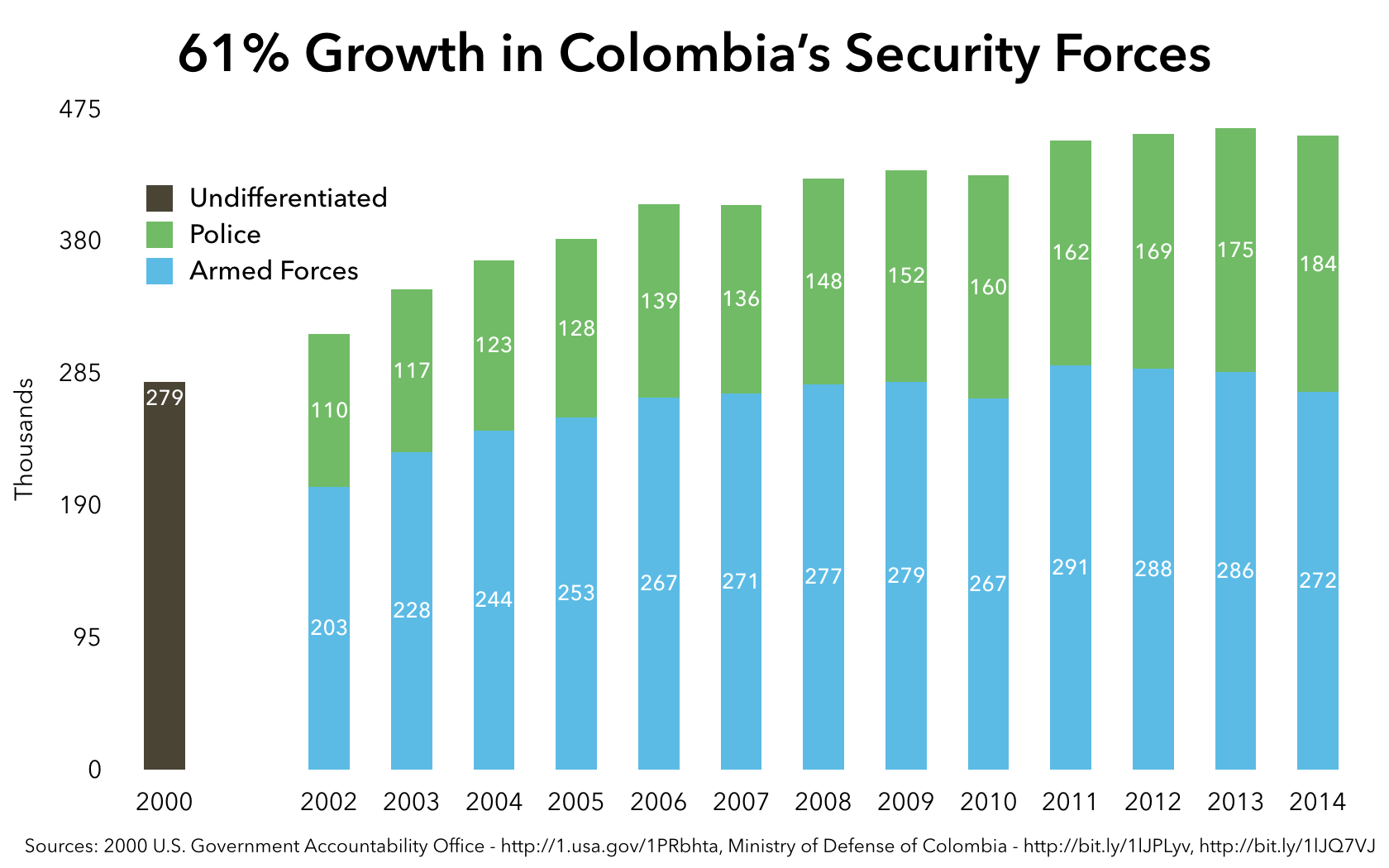The Armed Forces’ Future
Colombia’s armed forces, especially its army, grew very quickly during the Plan Colombia years. Now, with an accord appearing imminent, the military’s principal mission for the last 50 years—counter-insurgency—may fade away.
Other missions may come to replace it. Colombia is planning to increase its participation in UN peacekeeping missions, and to offer more training to other countries’ security forces. These tasks, though, will only occupy perhaps 10,000-20,000 people in a force of 270,000. If no new traditional defense threats emerge, budgetary and political pressures to shrink the force will mount during the post-conflict period.
The National Police, on the other hand, may grow in the face of continued organized-crime activity. There is a distinct possibility that this force will be removed from the Defense Ministry’s purview, where it has been since the early 1950s, perhaps to be transferred to a new public security ministry. Expect growth in organized crime investigative capabilities, community policing, and efforts to increase the police force’s rural presence.
(Text continues below the chart)

Shrinking would be a blow to Colombia’s military, especially its Army, where a generation of mid-level officers who rose during the conflict may face early retirement amid a shrinking number of billets for colonels and generals. To ease pressures to shrink, Colombia’’s armed forces may end up taking on new, non-traditional missions, like fighting organized crime, building roads, and protecting the environment, few of which actually require military skills and organization, and few of which offer clear opportunities for rewards (like combat medals) and career advancement.
At the same time, the post-conflict transitional justice system may require hundreds, or thousands, of military personnel to confess their participation in abuses, perhaps implicating their superiors. This could deal the armed forces a big reputational blow, just at what it regards to be a moment of triumph.
Civil-military relations will require skillful management in the post-conflict period. The U.S. government, which developed an intimately collaborative relationship with the Colombian military during the Plan Colombia years, should use continued engagement with both civilian and military leaders to help ease the transition.
 15
15